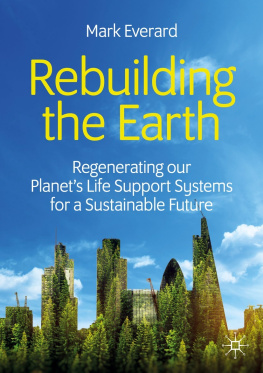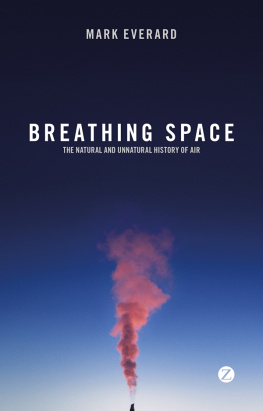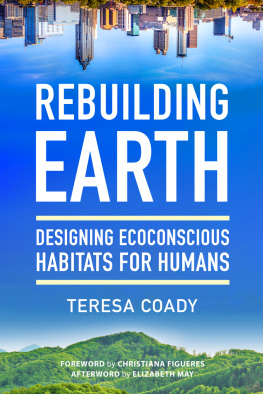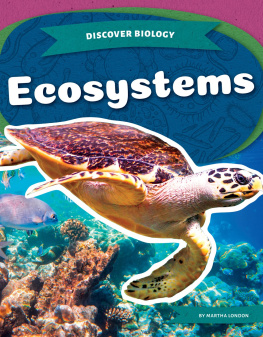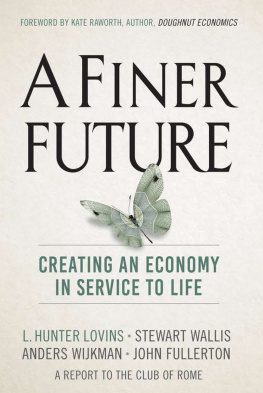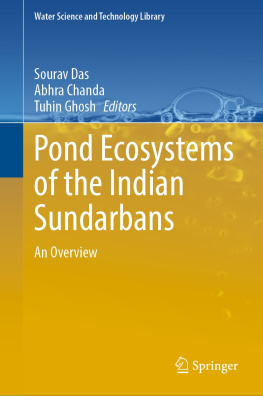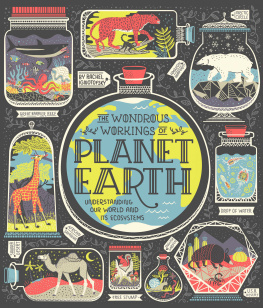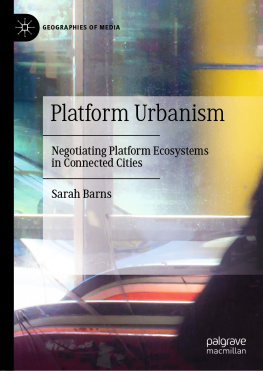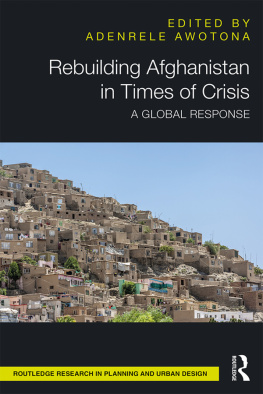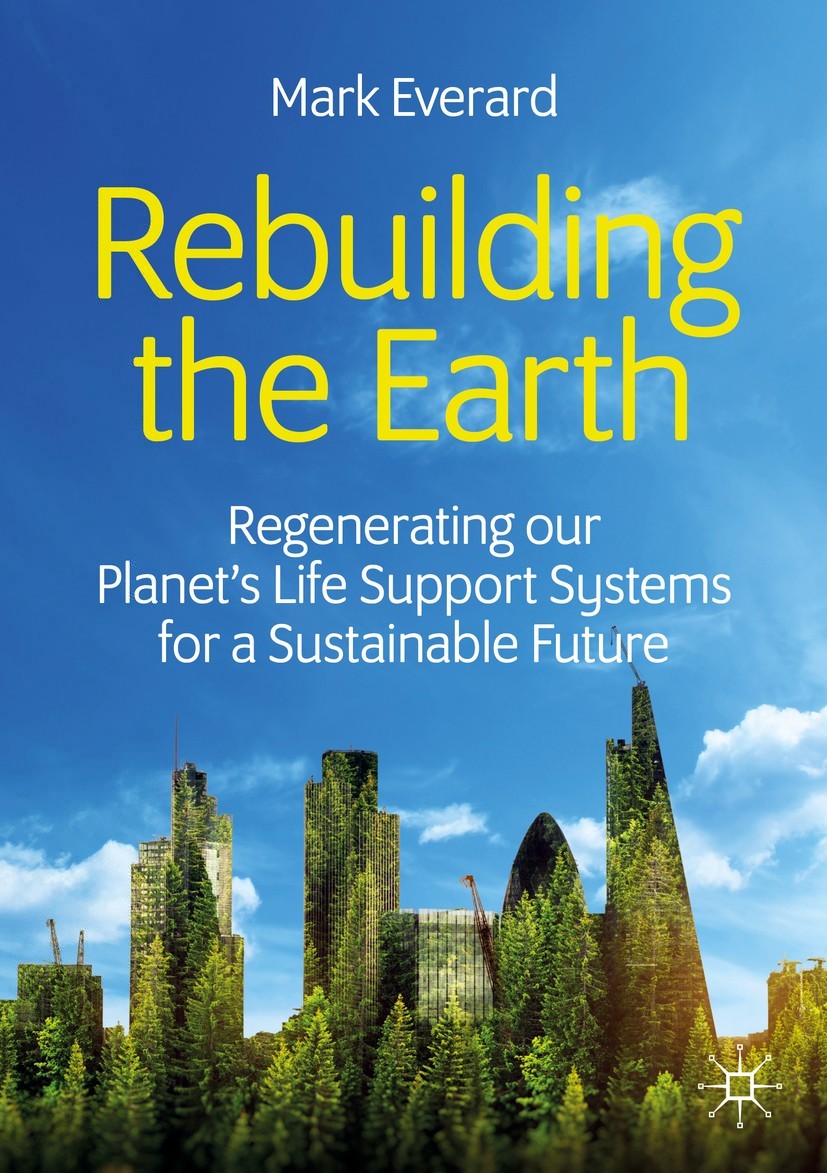Mark Everard
Rebuilding the Earth
Regenerating our planets life support systems for a sustainable future
Mark Everard
University of the West of England, Bristol, UK
ISBN 978-3-030-33023-1 e-ISBN 978-3-030-33024-8
https://doi.org/10.1007/978-3-030-33024-8
The Editor(s) (if applicable) and The Author(s), under exclusive license to Springer Nature Switzerland AG 2020
This work is subject to copyright. All rights are solely and exclusively licensed by the Publisher, whether the whole or part of the material is concerned, specifically the rights of translation, reprinting, reuse of illustrations, recitation, broadcasting, reproduction on microfilms or in any other physical way, and transmission or information storage and retrieval, electronic adaptation, computer software, or by similar or dissimilar methodology now known or hereafter developed.
The use of general descriptive names, registered names, trademarks, service marks, etc. in this publication does not imply, even in the absence of a specific statement, that such names are exempt from the relevant protective laws and regulations and therefore free for general use.
The publisher, the authors and the editors are safe to assume that the advice and information in this book are believed to be true and accurate at the date of publication. Neither the publisher nor the authors or the editors give a warranty, express or implied, with respect to the material contained herein or for any errors or omissions that may have been made. The publisher remains neutral with regard to jurisdictional claims in published maps and institutional affiliations.
Cover illustration: Borchee/gettyimages
This Palgrave Macmillan imprint is published by the registered company Springer Nature Switzerland AG.
The registered company address is: Gewerbestrasse 11, 6330 Cham, Switzerland
This is an important and timely book. Marks message is clear; it is time to rebuild the Ark. The blueprint for the construction of the Ark is available; Mark provides much needed positive examples of how people have chosen a more sustainable path. Crucially this book is about hopehope for the planet, hope for nature and hope for humanity.
Dr Gary Mantle MBE,Chief Executive of Wiltshire Wildlife Trust
With the overall pessimism regarding the future of our planet, this book brings some hope that we can still put the boat back to rights, enlightening our paths and actions through the global ecosystems metabolism and capacity to rejuvenate. Despite the irresponsible leadership being demonstrated across the globe with regard to the destruction of our planets resources and ecosystems, thesine qua noncondition for life on Earth, as well as towards our current and future wellbeing, Mark attempts, with persistence and perseverance based on good practice, to demonstrate how we can still recover and reactivate the vital functionalities of system Eartha highly commendable message of hope. In my long career promoting sustainable consumption and production patterns, I have encountered far more frustration than effective transformative change, but I am willing to share Marks optimism. Let us give it a try, believe and act with an attitude of Yes, We Can for the future of Earth, people and humanity.
Arab Hoballah,Former Chief of Sustainable Consumption and Production/SCP, United Nations Environment Programme (UNEP)
The great thing about Mark Everards writing is that he combines the philosophical with the practical, making you think more deeply about issues vital to the future wellbeing of the planetbut then he provides potential solutions, and is even optimistic that we can actually deliver some of them and save the environment, on which we are all completely dependent for our own existence, from the havoc we humans are wreaking across the entire globe.
Paul Knight, Director,Salmon and Trout Conservation, UK
Heres the thing: we absolutely know how to restore all the Earths critical ecosystems. A combination of ongoing inspired research, by experienced scientists such as Dr Everard, plus a reservoir of recovered wisdom from people with deep knowledge of the places in which they livetodays citizen scientists, if you likemakes this regenerative agenda practical, scaleable and transformational right nowafter decades of degeneration and devastation.
But we have to think about these challenges so much more holistically. Astonishingly, todays climate experts populate one big silo, and biodiversity experts another! The notion of co-benefits barely begins to do justice to the emerging revolution in both thinking and practice stimulated by the realisation that we face simultaneous emergencies on both fronts. Which means quite simply that natural climate solutions must become the watchword of the next decade.
Jonathon Porritt, Founder Director,Forum for the Future
If a common good comes from our daily twitter onslaught of sobering environmental news, it is the realisation that our connectedness can potentially lead to sea changes in the approach to pushing back against the damage. From out of this news bombardment we need to chart reasons for hope, and examples and pathways through the maze of problems that may appear to be intractable. This book offers a well-balanced picture of the challenges, and the reasons to be hopefulthat we can do more than we have yet been led to believe.
This book is a refreshing take on the foremost challenge of humanity. It is a call to embrace opportunities and is well grounded in the delivery of examplesfrom all nations and continents undergoing different degrees of developmentas to regenerative approaches at scales appropriate to the landscapes in question.
Calling upon our inner and innate need for survival, the author sets a positive and inclusive tone with a sense that we can learn, contribute and give back to our planet. Dr Everard shows us that solutions are there, and that we have the tools and the intelligence to revive and restore our natural systems through our own ingenuity and experience. Rebuilding and reconnecting to Earth is conveyed as nothing less than a mission; one that is far from impossible.
Stuart Orr, Freshwater Practice Leader,WWF International
A well-written book which communicates powerful messages, based largely upon the authors own experiences and a lifetime of professional expertise. This work doesnt simply identify and describe the problems with Earths ecosystems and the services they supply, but also describes realistic solutions based on the premise of reviving and rescuing the natural world in a stepwise manner. Accessible yet erudite, this is a must read for anyone interested in learning how we can begin to reverse the damage we have done to the planets ecosystems.
Dr Paul Johnston, Principal Scientist,Greenpeace International Science Laboratory
Sustainable development cannot be achieved simply by lightening our load on a seriously degraded and declining natural world. Rebuilding the Earth highlights both humanitys complete interdependence with the natural world, and that any serious engagement with sustainable development must entail rebuilding the foundering structure and functioning of nature as the irreplaceable bedrock of future human security and progress. The book is above all optimistic about the daunting challenges facing global society, its comprehensive range of case studies showing that we not only can but already are making regenerative change in fragmented ways across the world.

